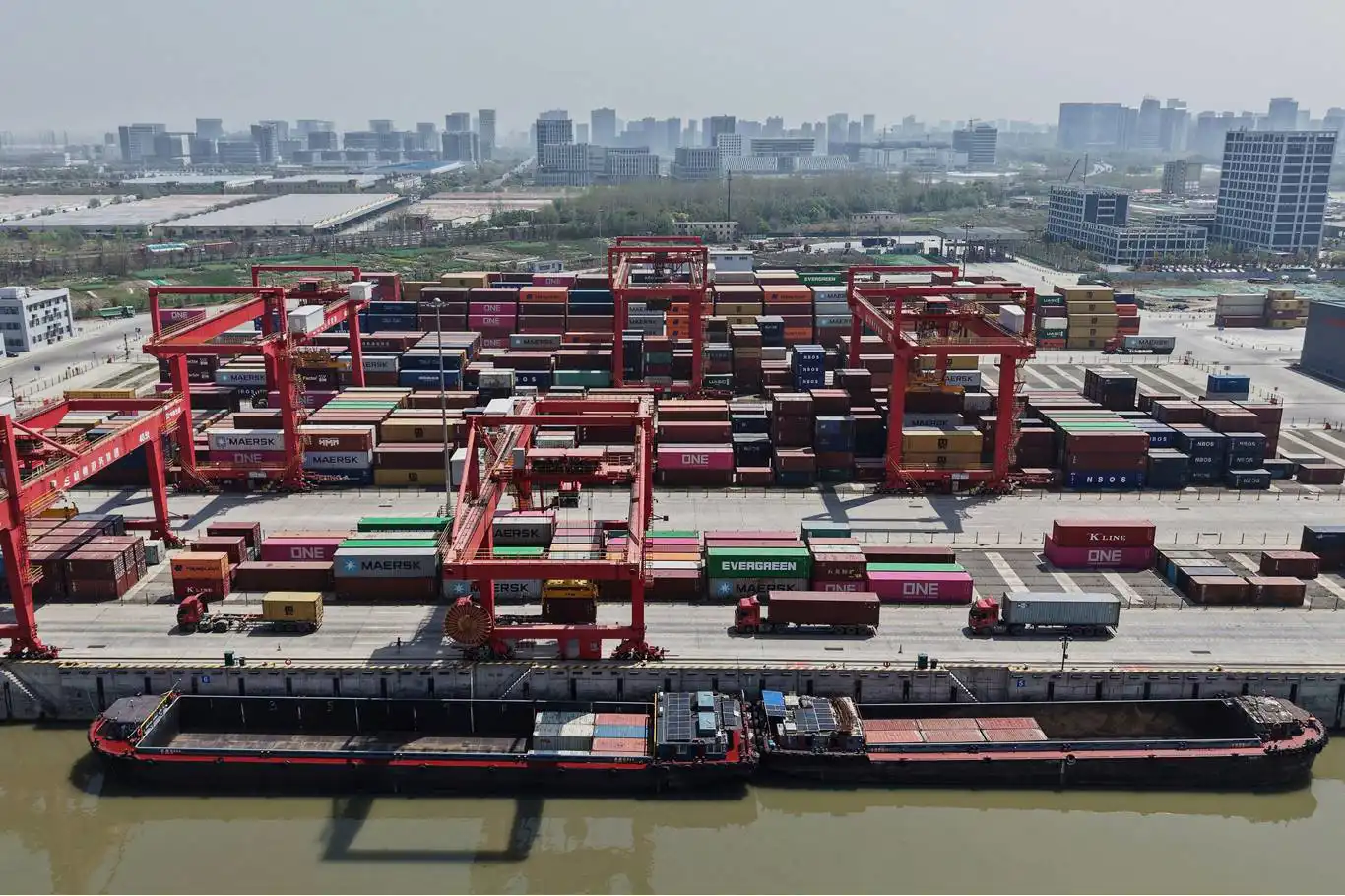Trump sparks global trade alarm with massive 104% tariff on China


The Trump administration announced it will forge ahead with a staggering 104% tariff on Chinese imports, effective 12:01 a.m. ET Wednesday, intensifying a high-stakes trade conflict that has economists and allies on edge.
The decision, confirmed after China ignored President Donald Trump’s Tuesday noon deadline to drop its retaliatory tariffs, is being decried as a dangerous escalation likely to harm American consumers, businesses, and global stability.
Critics slammed the move as a reckless and impulsive act, accusing Trump of wielding tariffs as a political bludgeon rather than a strategic tool. With Beijing standing firm, the tariff—set to hit at 12:01 p.m. China Standard Time—threatens to ignite a broader economic showdown, raising fears of disrupted supply chains and soaring costs for U.S. households already grappling with inflation.
The White House, however, painted a rosy picture, with Press Secretary Karoline Leavitt claiming that “nearly 70 countries” have contacted the U.S. to negotiate trade deals amid the tariff frenzy. Skeptics dismissed this as bravado, suggesting nations are reaching out not out of enthusiasm but to shield themselves from Trump’s economic strong-arming. On Tuesday, Trump held a call with South Korea’s acting president Han Duck-soo, while Italian Prime Minister Giorgia Meloni is slated to visit next week for talks on April 17—moves that critics fear signal more coercion dressed up as diplomacy.
Beyond tariffs, Trump and his team are zeroing in on foreign regulations, branding them “non-monetary tariffs” that unfairly block U.S. exports. Jamieson Greer, a former trade official, lashed out at Australia’s food safety rules as “specious fake science,” while taking swipes at the EU and Japan for restricting American agricultural goods. Such fiery rhetoric, analysts warn, risks poisoning cooperative trade frameworks and reeks of a protectionist agenda that prioritizes U.S. dominance over mutual benefit.
The fallout from Trump’s trade war is already looming large. Experts predict higher prices for American consumers, shrinking markets for U.S. exporters, and frayed ties with key allies. “This isn’t about fairness—it’s about forcing the world to bend to Trump’s will, no matter the cost,” one trade analyst remarked. As the administration digs in, the growing consensus is clear: the real losers may be the American people, caught in the crossfire of a policy critics call shortsighted and self-defeating. (ILKHA)
LEGAL WARNING: All rights of the published news, photos and videos are reserved by İlke Haber Ajansı Basın Yayın San. Trade A.Ş. Under no circumstances can all or part of the news, photos and videos be used without a written contract or subscription.
The Central Bank of the Republic of Türkiye (CBRT) has raised its policy rate from 42.5 percent to 46 percent, marking a significant move in its ongoing efforts to tackle inflation.
Türkiye’s overall export unit value index rose by 2.6% in February 2025 compared to the same month last year, reflecting higher prices in key export categories despite a simultaneous decline in export volumes, the Turkish Statistical Institute (TurkStat) reported on Thursday.
The Turkish lira edged down slightly to 38.1620 against the US dollar early Thursday as markets held their breath ahead of a highly anticipated interest rate decision from the Central Bank of the Republic of Türkiye (CBRT).
Gold prices soared to an all-time high on Wednesday, briefly crossing $3,350 per troy ounce, driven by safe-haven demand amid escalating global trade tensions and expectations of looser U.S. monetary policy.